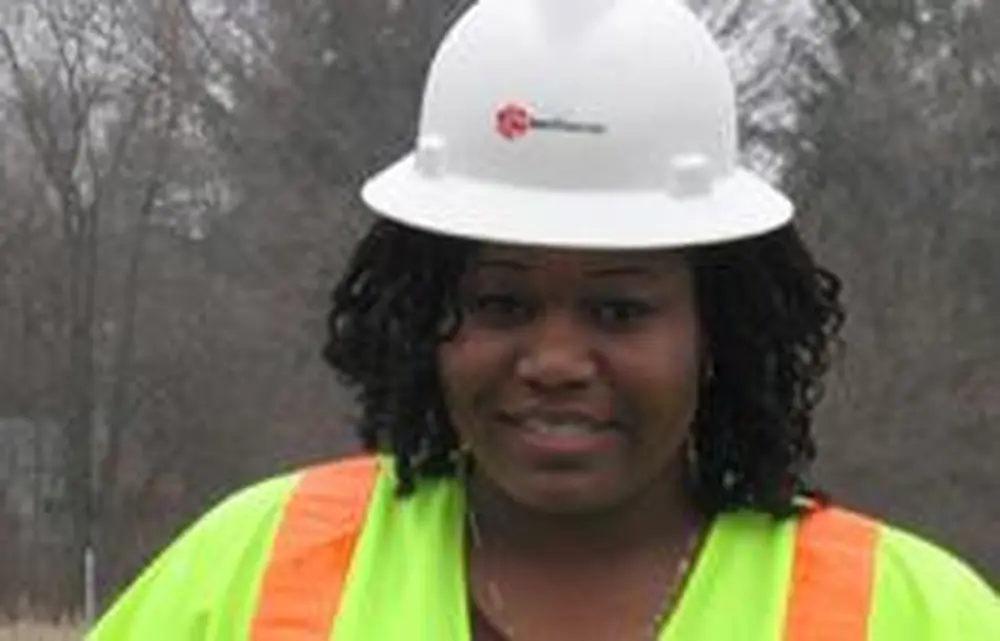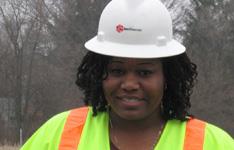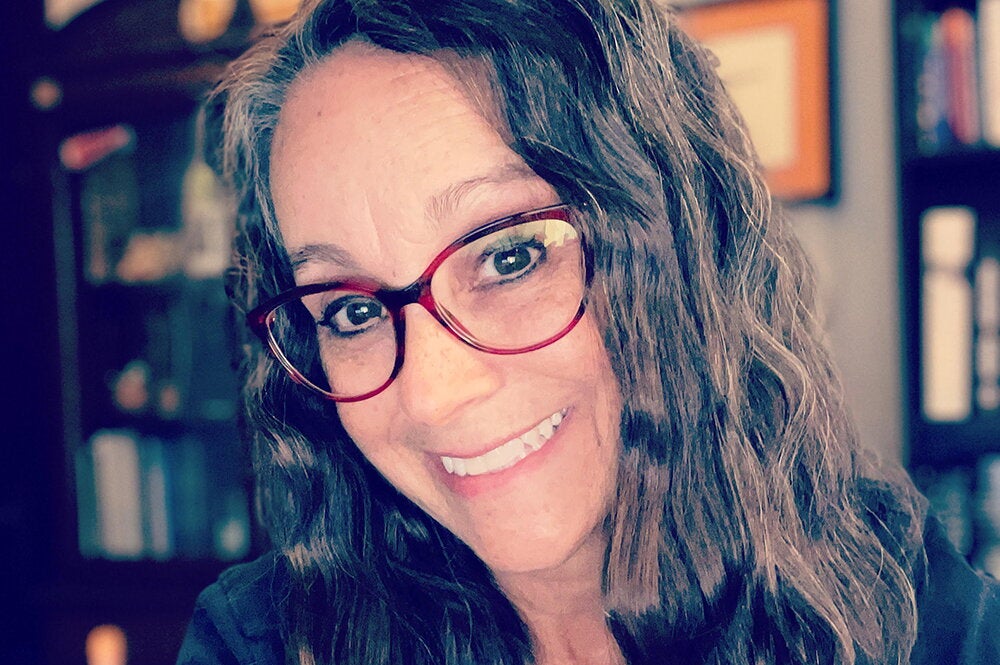

Stephanie Drain sounds disappointed when she ponders the fact that most people consider roads merely a means to an end, deserving attention only when a pothole or some other obstruction pops up. To her, roads are dynamic, intriguing, and worthy of a career.
The 1995 LAS graduate (BS, geology) is a field engineering manager for SemMaterials, a major U.S. asphalt supplier. Her job includes the rough and dirty task of traveling those broken and bumpy roads you love to hate, and determining how to nurse them back to health. Working across a dozen states, she’s served as primary field engineer on more than 50 road projects.
“If I don’t have a challenge, I get bored,” Drain says. “And there’s so much foresight and planning that’s required to build roads. Each one has a unique function, and that’s what’s fascinating to me.”
As she goes about analyzing drainage and other issues afflicting roads, Drain still laughs at the irony of her last name (her father can relate—he worked at Chicago’s Water Reclamation District), but in reality she didn’t even consider this field while studying in LAS. Originally she wanted to work at a museum creating preservatives for the displays.
Drain found that chemical engineering wasn’t a good fit for her, however, and consulted with LAS advisors and a dean before choosing geology. Still, upon graduation, she had little idea where her education would take her.
“I remember looking through the newspaper for jobs in Chicago and they had one for construction materials engineering,” Drain says. “They mentioned soils and aggregates, and so I was like, ‘That’s rocks and dirt, and I’m in geology, so maybe?’”
It wasn’t an easy career to enter. She drove more than four hours a day back and forth to that first job, which eventually gave her experience to apply for another job closer to home, as a technician.
She was frustrated by her relatively limited duties, so she took night classes in topics such as calculus, differential equations, and dynamics. Those courses, coupled with her science background, allowed her to become a registered professional engineer in Illinois, enabling her to work as a civil engineer on roads in her home state and elsewhere.
She has drawn attention through her work, including time spent on some major problems. While working at Flood Testing Laboratories in Chicago, Drain worked with Illinois Department of Transportation (IDOT) on SuperPave, a federally mandated method of asphalt production for more durable roads. At first, they had problems heating the new asphalt mix as much as it needed.
“So instead of having hot mix come up, they had these big globs of I don’t know what. It was awful,” Drain says. While other workers threw up their hands and went home, Drain put in a two-week stretch of 20-hour days (“I’d take a two-hour nap, shower, and come back,” she says) to help find a solution (the old equipment wasn’t heating the new asphalt mix as much as it needed). Her dogged work caught the eye of IDOT, and before long the state agency hired her to work in their laboratory on asphalt mixes.
There she continued her good work, and after a couple years she was approached by Koch Materials, which asked her to come work for them (her division at Koch was later purchased by SemGroup).
“She’s a gem,” says her supervisor, Gary Chapman, field engineering leader at SemMaterials. “I think her personal qualities are the things that stand out. She’s very likeable and works well with everyone.”
With her communication skills, Drain is often the one selected to make conference presentations, Chapman says. He adds that in the field, she’s also very good at making the sometimes quick decisions necessary. Roads present a variety of thicknesses, materials, and other unique quirks that no book can prepare you for, he says.
“You have to think on your feet,” he says. “You use your experience and move forward.”
It’s not always easy working as an engineer without an engineering degree, Drain says. At times she feels the others are a little quicker to grasp numbers and technical matters. She feels, however, that her knowledge of rocks gives her valuable insights on roads that many others don’t have.
She also credits classes such as speech communication with her ability to overcome a natural shyness. One of her geology professors encouraged her to make herself known to all her professors, and she carried that habit to the work world—she credits her assertiveness on job sites with finally landing her a job at SemMaterials.
“Just know how to sell yourself,” Drain says, when asked for advice that would help others following similar roads. “Just know who you are.”


